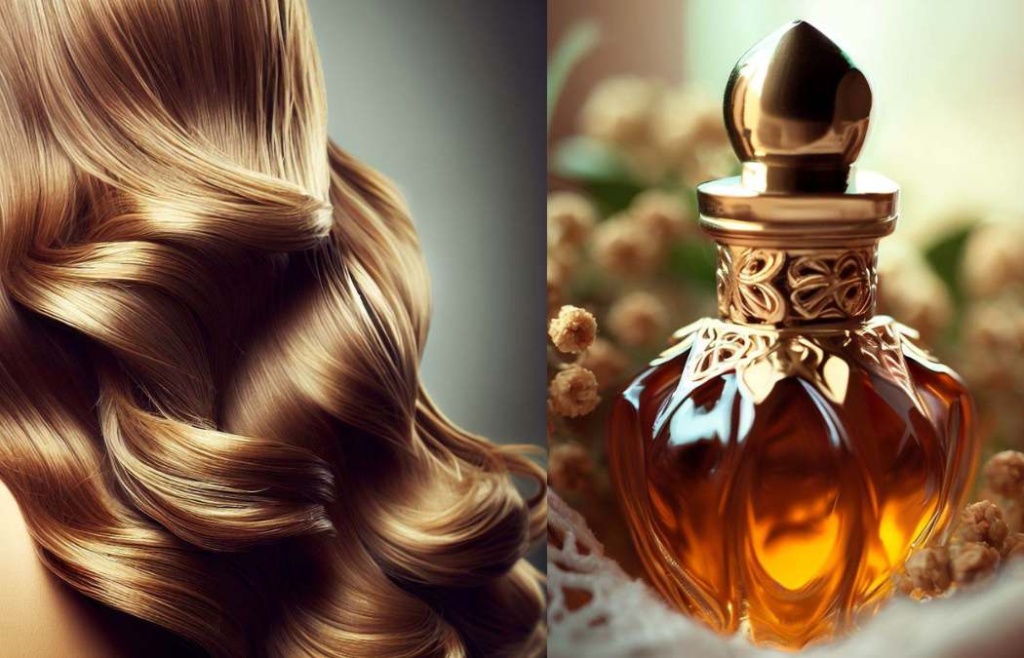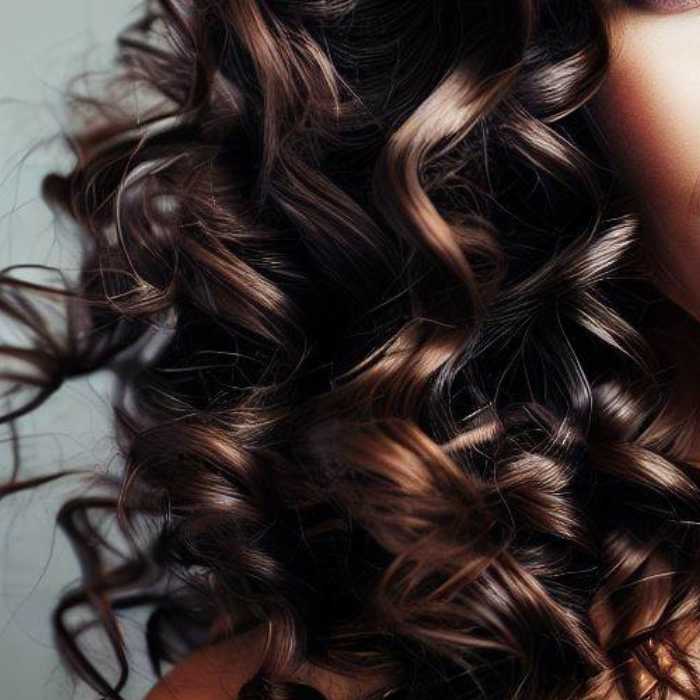Myrrh Essential Oil Benefits for Hair: A Guide to Natural Hair Care
What are myrrh essential oil benefits for hair? Myrrh essential oil can offer several benefits for hair:
- Promotes Hair Growth: Myrrh oil can stimulate the scalp and promote hair growth by improving blood circulation.
- Strengthens Hair: It can strengthen the roots and strands of hair, reducing hair fall and breakage.
- Scalp Health: Myrrh oil has anti-inflammatory and antifungal properties, which can help maintain a healthy scalp by combating dandruff and other scalp conditions.
- Moisturizes Hair: It can help to moisturize and condition the hair, making it softer and more manageable.
- Adds Shine: Myrrh oil can add a healthy shine to hair, making it look more vibrant and healthy.
Please note that essential oils should always be diluted before applying to the skin or hair, and it’s important to do a patch test to check for any allergic reactions. Here is an article on myrrh for an in-depth overview of this wonderful miracle of nature.

Introduction to Myrrh Essential Oil
Welcome to the world of essential oils, a fragrant realm where nature’s bounty meets our hair care needs. One such treasure is Myrrh essential oil, a potent elixir with a rich history that dates back to ancient civilizations. Known for its warm, slightly spicy scent, Myrrh has been used for centuries in various cultures for its medicinal and spiritual properties.
The process of extracting Myrrh essential oil is a delicate one, involving the careful harvesting and steam distillation of the resin from the Commiphora myrrha tree. This tree, native to parts of Africa and the Middle East, produces a sap that hardens into what we know as Myrrh. The resulting essential oil is a powerful concentrate that carries the essence of this remarkable tree.

While Myrrh essential oil has a wide range of uses, from aromatherapy to skincare, our focus today is on its benefits for hair. So, let’s dive in and explore how this ancient oil can help us achieve healthier, shinier, and stronger hair.
Understanding the Composition of Myrrh Essential Oil
Myrrh essential oil is a complex blend of various compounds, each contributing to its unique properties. While there’s a lack of specific scientific studies on Myrrh essential oil and hair care, understanding its composition can shed light on how it might benefit our hair.
Key Components of Myrrh Essential Oil
| Component | Potential Benefit |
|---|---|
| Terpenoids | Known for their anti-inflammatory and antioxidant properties, they could potentially help maintain a healthy scalp. |
| Sesquiterpenes | These compounds are believed to promote circulation, which could stimulate hair growth. |
| Furanoeudesma-1,3-diene | This is the primary active compound in Myrrh. It has been studied for its potential antimicrobial properties, which could help combat scalp conditions. |
The Role of Each Component in Hair Care
Terpenoids: These compounds are often found in essential oils and are known for their anti-inflammatory and antioxidant properties. In the context of hair care, they could potentially help maintain a healthy scalp by reducing inflammation and oxidative stress, which can lead to hair loss and other scalp conditions.
Sesquiterpenes: These compounds are believed to promote circulation. Improved blood flow to the scalp can stimulate the hair follicles, potentially promoting hair growth and strength.
Furanoeudesma-1,3-diene: This is the primary active compound in Myrrh. It has been studied for its potential antimicrobial properties, which could help combat scalp conditions like dandruff and folliculitis.
Tip: When using Myrrh essential oil for hair care, consider combining it with a carrier oil like coconut or jojoba oil. These oils can help dilute the Myrrh oil, making it safer for direct skin contact, and can also provide additional hair care benefits.
In the next section, we’ll delve deeper into the specific benefits of Myrrh essential oil for hair, exploring each aspect in detail.
Benefits of Myrrh Essential Oil for Hair

While scientific research specifically linking Myrrh essential oil to hair benefits is currently limited, the known properties of its key components suggest several potential benefits. Let’s explore these in more detail.
Promoting Hair Growth
The sesquiterpenes in Myrrh essential oil are believed to promote circulation. Improved blood flow to the scalp can stimulate the hair follicles, potentially promoting hair growth. However, more research is needed to confirm this benefit.
Strengthening Hair
The potential anti-inflammatory properties of the terpenoids in Myrrh essential oil could help maintain a healthy scalp environment. A healthy scalp is crucial for strong hair roots and strands, potentially reducing hair fall and breakage.
Maintaining Scalp Health
The primary active compound in Myrrh, Furanoeudesma-1,3-diene, has potential antimicrobial properties. This could help combat scalp conditions like dandruff and folliculitis, contributing to overall scalp health.
Moisturizing Hair
While there’s no specific component in Myrrh essential oil linked to hair moisturization, essential oils in general are often used in hair care for their conditioning properties. Myrrh oil could potentially help to moisturize and condition the hair, making it softer and more manageable.
Adding Shine to Hair
Again, while there’s no direct scientific evidence, the conditioning properties of Myrrh essential oil could potentially add a healthy shine to hair, making it look more vibrant and healthy.
Tip: For a simple at-home hair treatment, try adding a few drops of Myrrh essential oil to your regular conditioner. Leave it on for a few minutes before rinsing for potentially softer, shinier hair.
Remember, while these potential benefits are based on the known properties of Myrrh essential oil’s components, more research is needed to confirm these effects. Always do a patch test before using a new essential oil, and consider consulting with a healthcare professional if you have any concerns.
In the next section, we’ll discuss how to use Myrrh essential oil for hair care, including dilution methods, application tips, and safety precautions.
How to Use Myrrh Essential Oil for Hair
Using Myrrh essential oil for hair care is a straightforward process, but there are a few key steps and precautions to keep in mind. Here’s a guide to help you get started.
Dilution and Application Methods
Essential oils are potent and should always be diluted before applying to the skin or hair. Here’s a simple method for using Myrrh essential oil in your hair care routine:
- Choose a Carrier Oil: Carrier oils help to dilute the essential oil, making it safe for direct skin contact. Some popular choices for hair care include coconut oil, jojoba oil, and argan oil.
- Mix the Oils: A common ratio is 2-3 drops of essential oil per tablespoon of carrier oil. Adjust this ratio based on your hair’s length and thickness.
- Apply to Hair: Massage the oil mixture into your scalp and hair. You can use your fingers or a brush for even distribution.
- Let it Sit: Allow the oil to sit for at least 15-30 minutes. For a deeper treatment, you can leave it on overnight.
- Rinse: Rinse out the oil with your regular shampoo. You may need to shampoo twice to fully remove the oil.
Myrrh Oil Hair Mask: Combine Myrrh essential oil with a nourishing base like coconut oil or aloe vera gel. Apply this mask to your hair, leave it on for 20-30 minutes, then rinse it off. This could help moisturize your hair and add shine.
Precautions and Allergy Tests
Before using Myrrh essential oil (or any new product), it’s important to do a patch test to check for any allergic reactions. Here’s how:
- Dilute the Oil: Mix a drop of Myrrh essential oil with a teaspoon of carrier oil.
- Apply to Skin: Apply a small amount of the diluted oil to the inside of your forearm.
- Wait: Wait 24 hours to see if any reaction occurs. If you notice any redness, itching, or swelling, discontinue use.
Frequency of Use for Optimal Results
The frequency of use can vary based on your hair type and specific needs. As a general guideline, you might start with once a week and adjust based on your hair’s response.
Remember, while Myrrh essential oil has potential benefits for hair, it’s not a substitute for a balanced diet, good hair care habits, and regular check-ups with your healthcare provider. Always consult with a professional if you have any concerns.
In the next section, we’ll compare Myrrh essential oil with other popular essential oils for hair care, helping you choose the right oil for your specific needs.
Learn about myrrh chemical composition and also about making your own DIY skincare recipes with myrrh essential oil.
Comparing Myrrh Essential Oil with Other Essential Oils for Hair
In the world of essential oils, Myrrh is just one of many options for hair care. Each oil has its unique properties and potential benefits. Let’s compare Myrrh with a few other popular choices to help you find the right fit for your hair needs.
Similarities and Differences in Benefits
| Essential Oil | Promotes Hair Growth | Strengthens Hair | Maintains Scalp Health | Moisturizes Hair | Adds Shine to Hair |
|---|---|---|---|---|---|
| Myrrh | Possible, due to sesquiterpenes promoting circulation | Possible, due to anti-inflammatory properties of terpenoids | Possible, due to antimicrobial properties of Furanoeudesma-1,3-diene | Potential conditioning properties | Potential conditioning properties |
| Lavender | Yes, supported by some studies | Possible, due to its soothing properties | Yes, due to its antimicrobial properties | Yes, known for its conditioning properties | Yes, known for its conditioning properties |
| Rosemary | Yes, supported by some studies | Yes, known for its strengthening properties | Yes, due to its antimicrobial properties | Yes, known for its conditioning properties | Yes, known for its conditioning properties |
| Tea Tree | Possible, due to its cleansing properties | Possible, due to its cleansing properties | Yes, due to its strong antimicrobial properties | Possible, due to its cleansing properties | Possible, due to its cleansing properties |
Tip: You can mix and match essential oils to create a blend that suits your specific hair needs. Just remember to always dilute them with a carrier oil before application.
How does Frankincense Essential Oil Compare with Myrrh Essential Oil in Terms of Benefits for the Hair?
Frankincense and Myrrh are both renowned essential oils with a long history of use in various cultures. When it comes to hair care, both oils have potential benefits, although scientific research specifically linking these oils to hair benefits is currently limited.
Here’s a comparison based on the known properties of their key components:
Frankincense Essential Oil for Hair
- Promotes Hair Growth: Frankincense oil is believed to stimulate the hair follicles, which could potentially promote hair growth. However, more research is needed to confirm this benefit.
- Strengthens Hair: The potential anti-inflammatory properties of Frankincense oil could help maintain a healthy scalp environment, which is crucial for strong hair roots and strands.
- Maintains Scalp Health: Frankincense oil has potential antimicrobial properties, which could help combat scalp conditions like dandruff and folliculitis.
- Moisturizes Hair: While there’s no specific component in Frankincense oil linked to hair moisturization, essential oils in general are often used in hair care for their conditioning properties. Frankincense oil could potentially help to moisturize and condition the hair, making it softer and more manageable.
- Adds Shine to Hair: The conditioning properties of Frankincense oil could potentially add a healthy shine to hair, making it look more vibrant and healthy.
Myrrh Essential Oil for Hair
- Promotes Hair Growth: The sesquiterpenes in Myrrh oil are believed to promote circulation, which could stimulate hair growth.
- Strengthens Hair: The potential anti-inflammatory properties of the terpenoids in Myrrh oil could help maintain a healthy scalp environment, which is crucial for strong hair roots and strands.
- Maintains Scalp Health: The primary active compound in Myrrh, Furanoeudesma-1,3-diene, has potential antimicrobial properties, which could help combat scalp conditions like dandruff and folliculitis.
- Moisturizes Hair: While there’s no specific component in Myrrh oil linked to hair moisturization, essential oils in general are often used in hair care for their conditioning properties. Myrrh oil could potentially help to moisturize and condition the hair, making it softer and more manageable.
- Adds Shine to Hair: The conditioning properties of Myrrh oil could potentially add a healthy shine to hair, making it look more vibrant and healthy.
Please note that while these potential benefits are based on the known properties of Frankincense and Myrrh essential oils’ components, more research is needed to confirm these effects. Always do a patch test before using a new essential oil, and consider consulting with a healthcare professional if you have any concerns.
Choosing the Right Essential Oil for Specific Hair Needs
Choosing the right essential oil for your hair can depend on several factors, including your hair type, scalp condition, and specific hair concerns. Here are a few general guidelines:
- For Hair Growth: Lavender and Rosemary oils are supported by some studies for promoting hair growth.
- For Hair Strength: Rosemary oil is known for its hair-strengthening properties.
- For Scalp Health: Tea Tree oil has strong antimicrobial properties, making it a good choice for maintaining scalp health.
- For Hair Moisture and Shine: Lavender and Rosemary’s oils are known for their conditioning properties, which can help moisturize hair and add shine.
Remember, while essential oils can be a beneficial addition to your hair care routine, they’re not a cure-all. It’s also important to maintain a balanced diet, good hair care habits, and regular check-ups with your healthcare provider.
Finding References
Scientific Studies and Research
- PubMed: A free search engine maintained by the U.S. National Library of Medicine. It contains millions of citations and abstracts from biomedical literature, including studies on essential oils.
- Google Scholar: A freely accessible web search engine that indexes scholarly literature across various disciplines. You can use it to find studies and papers on essential oils and hair care.
Expert Opinions and Recommendations
- Aromatherapy and Essential Oil Books: Books by experts in the field of aromatherapy and essential oils can provide in-depth information and recommendations. Some well-known authors in the field include Robert Tisserand, Valerie Ann Worwood, and Julia Lawless.
- Professional Aromatherapists: Consultations with professional aromatherapists can provide personalized advice and recommendations based on your specific needs and concerns.
User Reviews and Testimonials
- Online Retailers: Websites that sell essential oils often include user reviews and testimonials. These can provide real-world insights into the potential benefits and uses of Myrrh essential oil for hair.
- Online Forums and Social Media: Online communities focused on essential oils and natural hair care can be a valuable source of information and personal experiences.
Conclusion
As we journey through the fragrant garden of essential oils, it’s clear that Myrrh essential oil holds a special place with its unique properties and potential benefits for hair. From promoting hair growth and strengthening hair, to maintaining scalp health and adding shine, Myrrh essential oil could be a valuable addition to your hair care routine.
Remember, while we’ve explored the potential benefits based on the known properties of Myrrh essential oil’s components, more research is needed to confirm these effects. Always do a patch test before using a new essential oil, and consider consulting with a healthcare professional if you have any concerns.
Personal Experiences and Testimonials
While scientific research is crucial, personal experiences can also provide valuable insights. Many people have shared their positive experiences with using Myrrh essential oil for hair care, noting improvements in hair health and appearance. However, everyone’s hair is unique, so what works for one person may not work for another.
Encouragement for Further Exploration and Use
The world of essential oils is vast and full of potential. Whether you’re new to essential oils or a seasoned user, there’s always more to explore and learn. So why not give Myrrh essential oil a try? You might just discover a new favorite for your hair care routine.
In the end, the most important thing is to find what works best for you and your hair. So keep exploring, keep experimenting, and most importantly, enjoy the journey.
Myrrh Oil Hair Rinse: After shampooing, rinse your hair with a mixture of water and a few drops of Myrrh essential oil. This can potentially add shine and softness to your hair.
Thank you for joining us on this exploration of Myrrh essential oil and its potential benefits for hair. We hope you found it informative and inspiring.
Happy oiling!
References
- Alraddadi BG, Shin H-J. Biochemical Properties and Cosmetic Uses of Commiphora myrrha and Boswellia serrata. Cosmetics [Internet]. 2022 [cited 2023 May 18]; 9(6):119. Available from: https://www.mdpi.com/2079-9284/9/6/119.
- Goyal A, Sharma A, Kaur J, Kumari S, Garg M, Sindhu RK, et al. Bioactive-Based Cosmeceuticals: An Update on Emerging Trends. Molecules [Internet]. 2022 [cited 2023 May 18]; 27(3):828. Available from: https://www.ncbi.nlm.nih.gov/pmc/articles/PMC8837976/.
- Broadley D, McElwee KJ. A “hair‐raising” history of alopecia areata. Exp Dermatol [Internet]. 2020 [cited 2023 May 18]; 29(3):208–22. Available from: https://onlinelibrary.wiley.com/doi/10.1111/exd.14073.
